An overview of our society

Introduction
The Research Society on Alcohol (RSA), until 2023, known as the Research Society on Alcoholism, was established in 1976. Today, the goals of RSA are to provide a forum for communication and career development among alcohol researchers, to attract and support the next generation of alcohol researchers and to disseminate scientific knowledge regarding alcohol use and alcohol-related problems
Annual Scientific Conference
The Annual Scientific Conference provides a meeting place for scientists and clinicians from across the country, and around the world, to interact. It allows a unique opportunity to meet people, doing work in alcohol research, on a personal level. The meeting also gives members and non-members the chance to present their latest findings in alcohol research through abstract and symposia submissions.
The format of the meeting consists of plenary presentations, symposia, roundtables and workshops. Lengthy abstract/poster sessions are provided for adequate viewing time. Additionally, RSA's Fetal Alcohol Spectrum Disorder Study Group (FASDSG) holds their meeting/luncheon on the day prior to RSA's official opening. An annual tradition of the meeting is to start with an Opening Reception/Social the night prior to the official opening and have the Banquet/Awards Presentations on the last night of the meeting.

Awards
Distinguished Researcher Award, since 1980
Early Career Investigator Award, since 1988
Seixas (Service) Award, since 1988
Lifetime Achievement Award, since 1996
Media Award, since 2000
Henri Begleiter Excellence in Research Award, since 2007
Marlatt Mentorship Award, since 2012
Dora Goldstein Science Award, since 2019
All awards are presented to the recipients during the annual meeting.
Publications
RSA publishes (online - 12 times a year) the scientific journal Alcohol: Clinical and Experimental Research. The journal provides the most recent findings in the field of alcohol research. Manuscripts may be submitted by any scientist pursuing research dealing with the effects of alcohol or consequences of alcohol ingestion, including studies on treatment, prevention or epidemiology. All manuscripts are thoroughly reviewed to assure that the publications represent the highest standard of science and scholarship.

Public and Legislative Interactions
The RSA works closely with NIH institutes to stimulate research initiatives and provide information to RSA members regarding funding trends. The Society maintains an active program of public and legislative interactions; including an active participation in the Congressional budget allocation process for our major federal support agencies such as NIAAA and the Department of Veterans Affairs. RSA standing and Ad Hoc committees work to define new research themes emerging from our annual scientific conferences that may impact on the long term needs and opportunities for our research, including the development of new avenues for medications, special populations vulnerable to the effects of alcohol, and new leads to the genetic, psychosocial or epidemiological pursuit of alcohol related issues. In addition, Society members serve on NIH National Advisory Committees and Institutional Review Groups.
Testimony
RSA and its membership take an active role in providing testimony to Congress on alcohol research and related issues. The Society is working to increase the level of federal funding for alcohol research so that research dollars reflect the magnitude of the problem. Only through research can scientists lead the way toward prevention and treatment of alcohol use and alcohol-related problems.



